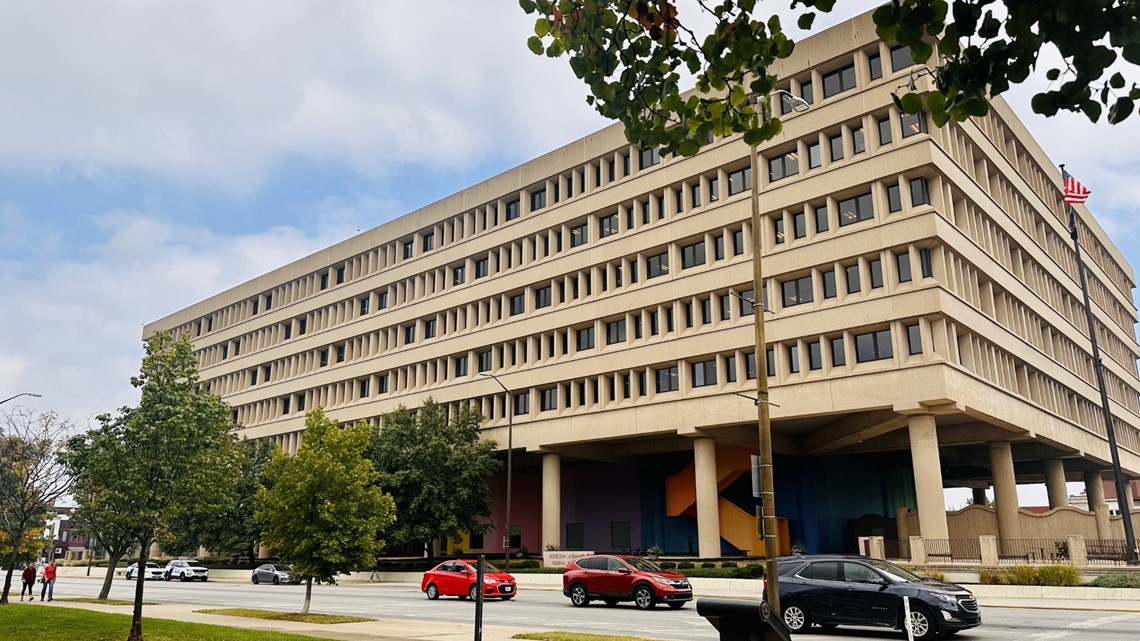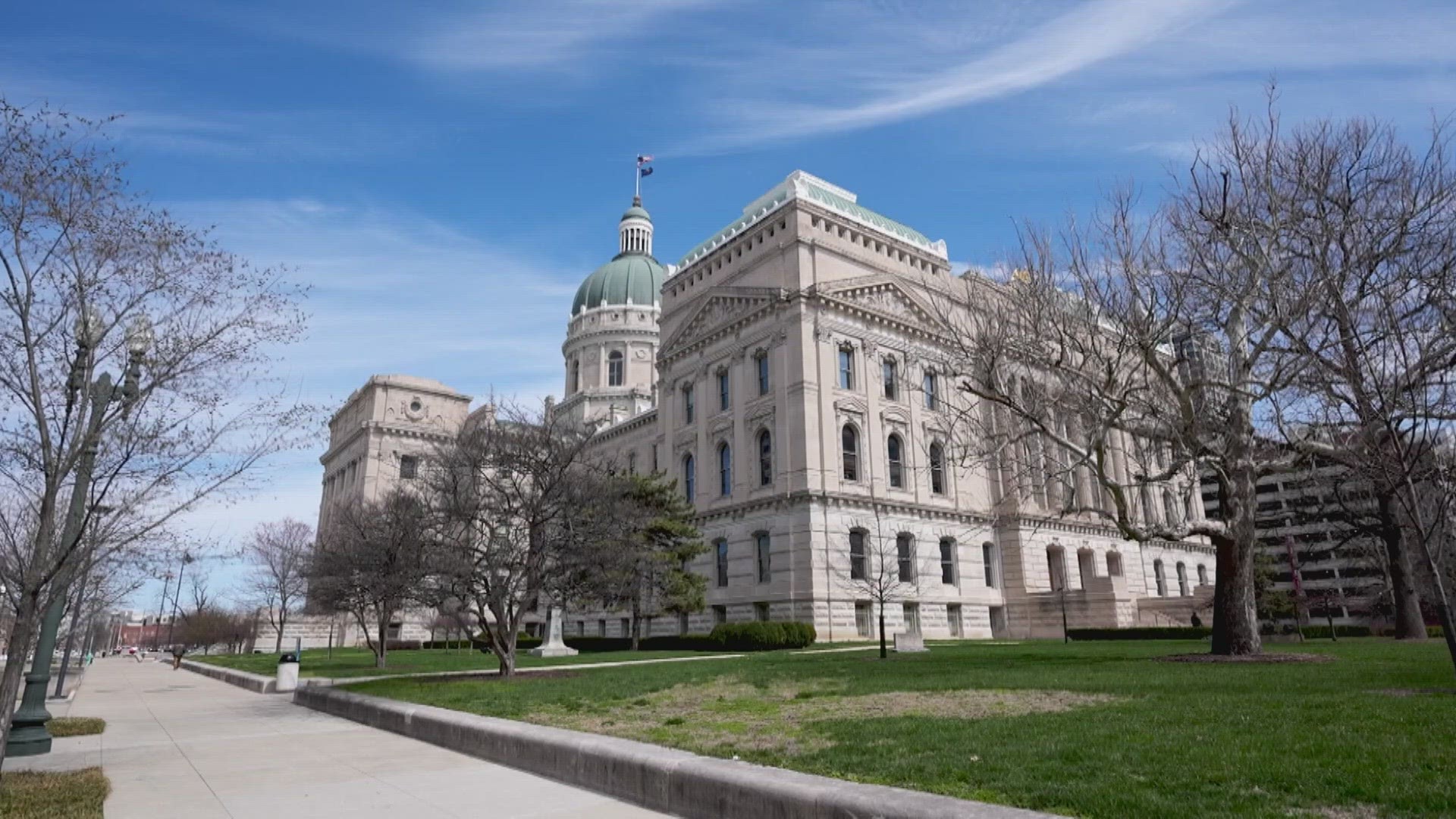INDIANAPOLIS — With gridlock persisting in Washington, a government shutdown is looking all but inevitable ahead of this weekend's deadline.
While the Senate pushes forward with bipartisan approach aimed at keeping the government open, the Republican-controlled House has made little progress — most recently with Speaker Kevin McCarthy’s last-ditch plan collapsing Friday. If spending measures aren't passed by Saturday night, millions of federal employees will be furloughed and many others will be forced to work without pay until the shutdown ends.
On Friday, Indiana Gov. Eric Holcomb said the state is prepared for a shutdown, but ultimately hopes Congress will make a deal.
“It is avoidable. They got less than 48 hours. Usually, they get things done when they absolutely have to, and I hope they realize this is that time,” Holcomb said.
He said this week, his office has been impacted by the looming deadline.
“We haven’t lost any deals over this yet, but we have had to reschedule some meetings in anticipation that folks wouldn’t be able to travel,” Holcomb said. “It’s unfortunate. It has an effect, obviously first and foremost on the employees.”
A handful of federal safety services that people rely on everyday are also in jeopardy. From dwindling funds for critical food assistance programs to potential delays in customer service for recipients of low-staffed Medicare and Social Security offices. The ripple effects would come down to how long the shutdown lasts and varying contingency plans in place at impacted agencies.
Will SNAP be affected by a government shutdown? What about WIC?
A government shutdown could risk millions of low-income Americans' access to food and nutrition assistance programs — with impacts depending on how long the shutdown lasts and program-by-program contingency funds.


Nearly seven million women and children who rely on the Special Supplemental Nutrition Program for Women, Infants, and Children (WIC) could be at risk of losing assistance almost immediately into a shutdown, according to the Biden Administration. That's because the federal contingency fund supporting normal WIC operations will likely run out in a matter of days — pushing states to rely on their own money or carryover funds.
Families who receive benefits from the Supplemental Nutrition Assistance Program could also lose assistance if a shutdown drags out for a more significant period of time. According to the Agriculture Department, regardless of what happens in Washington this weekend, households will receive SNAP assistance as usual through October.
In Marion County, more than 100,000 people rely on federal assistance programs.
According to the Indiana Family and Social Services Administration, more than 4,000 people get "Temporary Assistance for Needy Families" or "TANF." More than 140,000 people receive "SNAP" benefits. More than 8,000 people could also lose Section 8 housing assistance.
Holcomb said there are some safeguards in place and said this is not the way the state likes to operate.
“We don’t like to be slowed down and this is having that effect,” he said.
Will I continue to receive Social Security checks?
Regardless of what happens in Washington this weekend, Social Security and Supplemental Security Income recipients will continue to receive payments. But response times for people with issues could be delayed due to furloughs.
Would a shutdown impact Medicare and other health services?
Medicare and Medicaid benefits will also continue — as both are mandatory programs funded separately from annual appropriations. That means that patients should still be able to see their doctors and have medical bills paid.
But, similar to Social Security, there could be delays and disruptions to customer service due to furloughs. According to contingency details published by the Health and Human Services Department last week, about half of the Centers for Medicare and Medicaid Services are set to be furloughed in the event of a lapse of appropriations.
Beyond Medicare and Medicaid, health care services for veterans are set to continue in the event of a shutdown. The majority of programs funded by the Indian Health Service would also remain in operation and IHS has received advanced appropriations for the 2024 fiscal year, per a recent contingency plan.
How could flights and other travel be impacted?
The nation’s air-travel system is expected to operate relatively normally during a shutdown. Air traffic controllers and TSA screeners are deemed essential workers — however, those people won’t be paid until the shutdown ends, and TSA lines could grow longer if enough screeners stay home.
Transportation Secretary Pete Buttigieg said Wednesday that air travel will remain safe in a shutdown, but that the training of new air traffic controllers will stop and 1,000 trainees will be furloughed.
Could there be student loan disruptions?
If spending measures aren’t passed by Saturday’s deadline, the government shutdown would start the same day that student loans emerge from the pandemic pause after beginning to accrue interest again on Sept. 1.
But, shutdown or not, borrowers’ payments will still be due. For the most part, loan servicers will be able to continue to process payments regularly — but there could be delays for those who need to consult with or seek help from the Education Department due to the potential of agency furloughs.
Students applying for federal aid during a shutdown can expect similar delays because of this. Officials have pointed to potential disruptions to processing FAFSA applications, disbursing Pell Grants and pursuing public loan forgiveness, for example.
Would mail services slow down?
The United States Postal Service will not be affected by a government shutdown. The Postal Service doesn't rely on taxpayer dollars because it generally gets its funding through the sales of products and services.
The deadline for Congress to reach a deal is Saturday at midnight with the government set to shut down at 12:01 a.m. Sunday.

